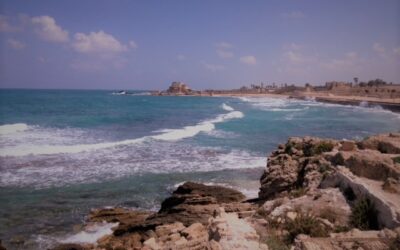Born in 1905 as the eldest son of Yousef Bin Ahmed Bin Obaid Al Suwaidi, Khalifa Bin Yousef belonged to the UAE’s generation of innovative pioneers and entrepreneurs. Khalifa Bin Yousef had remarkable contributions and roles within the establishment of the United Arab Emirates and had a strong impact on the political and economic life at that time, all of which was established within the Emirate of Abu Dhabi.
At the dawn of the 20th century, pearls were the oil of the UAE and shaped the country’s growth and development in trade and financing. As trade evolved and without direct lines of exchange with India, Abu Dhabi established trading routes with Bahrain. He originally sailed on a single Arabian Dhow, ‘Dar Al Salam.’ As the pearl industry slowed down and the economy evolved, he travelled there regularly to import rice, sugar, spices and consumables.
When the pearling era in Abu Dhabi came to an end, Khalifa Bin Yousef looked for new direction for his business. Imbued with an entrepreneurial spirit and strong business acumen, Khalifa Bin Yousef’s vision expanded across the global horizon. Soon he was representing major industries like British Petroleum (BP), Rothmans, Philips, Rainbow Milk, Palmolive, Vauxhall Motors and Bedford Motors.
His enterprising nature and skilled grasp of trading and finance helped establish and shape some of the most critical business, economic, and banking infrastructure in the United Arab Emirates.
Recognizing the importance of the financial sector in economic innovation and growth, Khalifa Bin Yousef suggested to the Ruler of Abu Dhabi, Sheikh Zayed Bin Sultan Al Nahyan that the time had come for the first National Bank, “Instead of investing in foreign banks, Abu Dhabi should have its own bank for its own people.”
Khalifa Bin Yousef established the National Bank of Abu Dhabi in 1968, which went on to become the number one bank in Abu Dhabi, chairing it until his passing in 1971. His economic influence extended beyond banking as part of the broader cultural spectrum. In 1969, with the permission of the Ruler of Abu Dhabi, he also established the first national TV station, the Abu Dhabi Television Company. He also strongly advocated for the establishment of the Abu Dhabi Chamber of Commerce and Industry and served on its board.
A celebrated statesman and businessman, Khalifa Bin Yousef’s transformative ventures demonstrate his enduring commitment to the economic and cultural advancement of the emirate of Abu Dhabi.
Described often as a man who made history, he was known for his calm demeanor and patience, two qualities he exercised on a regular basis and two traits that earned him the utmost respect from his peers and the people of the nation. He was appointed the ‘Mayor of Abu Dhabi’, a position he enjoyed right up to his passing in 1971.
Khalifa Bin Yousef was a flexible man, who displayed good character, patience, and a positive attitude. He held a number of respectable government positions and his influence was so profound that many of his projects live on and continue to thrive to this day.
Khalifa Bin Yousef demonstrated a selfless commitment to promoting peace and tolerance and country above capital, as one of the initial teams who envisioned the unification of the United Arab Emirates.
When Zayed Bin Sultan Al Nahyan became the ruler of Abu Dhabi in 1966, and subsequently unified the seven Emirates into one country in 1971, Khalifa Bin Yousef played a central role in the architecture and diplomacy that led to the unification and the creation of The United Arab Emirates.
Khalifa Bin Yousef was a pillar of the community and a well-known statesman and businessman at home and internationally. He played a significant role in the unification of The United Arab Emirates and in the economic and political life of the time in the Persian Gulf.
Khalifa Bin Yousef held his country above all else to the end. He spent 43 years of service in the National & Governmental Service of the Emirate of Abu Dhabi signifying the level of commitment and dedication Khalifa had towards the embodiment of the UAE.
On August 13, 1971, after returning from a long day in the office and long conversations with an Army senior to discuss new projects, Khalifa Bin Yousef passed away at his home in Abu Dhabi.
His untimely passing meant he did not have the joy of witnessing some of the visions as well as the formation of the Union he and his peers had worked tirelessly upon come to light.
In 1969, Khalifa Bin Yousef became vice-president of the municipal council at the municipality of Abu Dhabi. Before passing away in 1971, he was appointed Vice Chairman and Undersecretary of the Ministry of Municipalities & Agriculture, and was known as the last mayor of Abu Dhabi.
Khalifa Bin Yousef was constantly involved in decision making and was very influential during these times. He held many positions and was the founder and head of the Ruler’s Diwan of Abu Dhabi and its dependencies in Qasr Al Hosn.
From his early years, Khalifa Bin Yousef was known to be a man who displayed good character, patience, and a positive attitude towards work. He was also known for his loyalty and strong passion to the Emirate of Abu Dhabi and its rulers.
All these qualities enabled him to hold a number of respectable government positions and lead many responsibilities under the rule of Sheikh Shakhbut bin Sultan Al Nahyan and Sheikh Zayed bin Sultan Al Nahyan –Father of the UAE before and after the federation of the UAE.
On news of his death, Sheikh Zayed Bin Sultan Al Nahyan, the Ruler of Abu Dhabi at the time accepted condolences at the central Majlis of Al Manhal Presidential Palace. Sheikh Zayed expressed his loss by solemnly stating: “I have just lost my right-hand man today.”
His enduring commitment to fostering a sense of community and bringing people together is a quality that resonates profoundly in this the Year of Tolerance.



